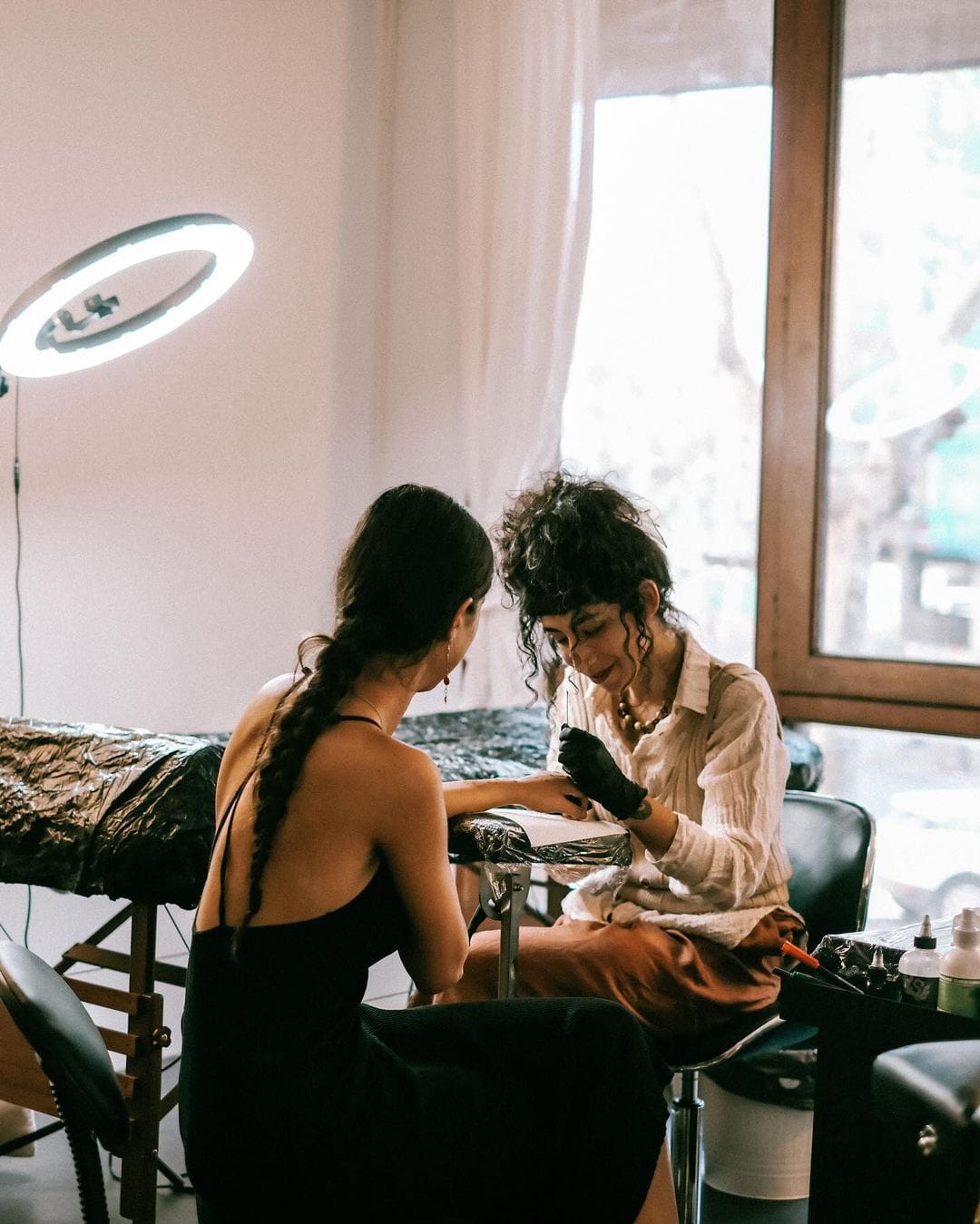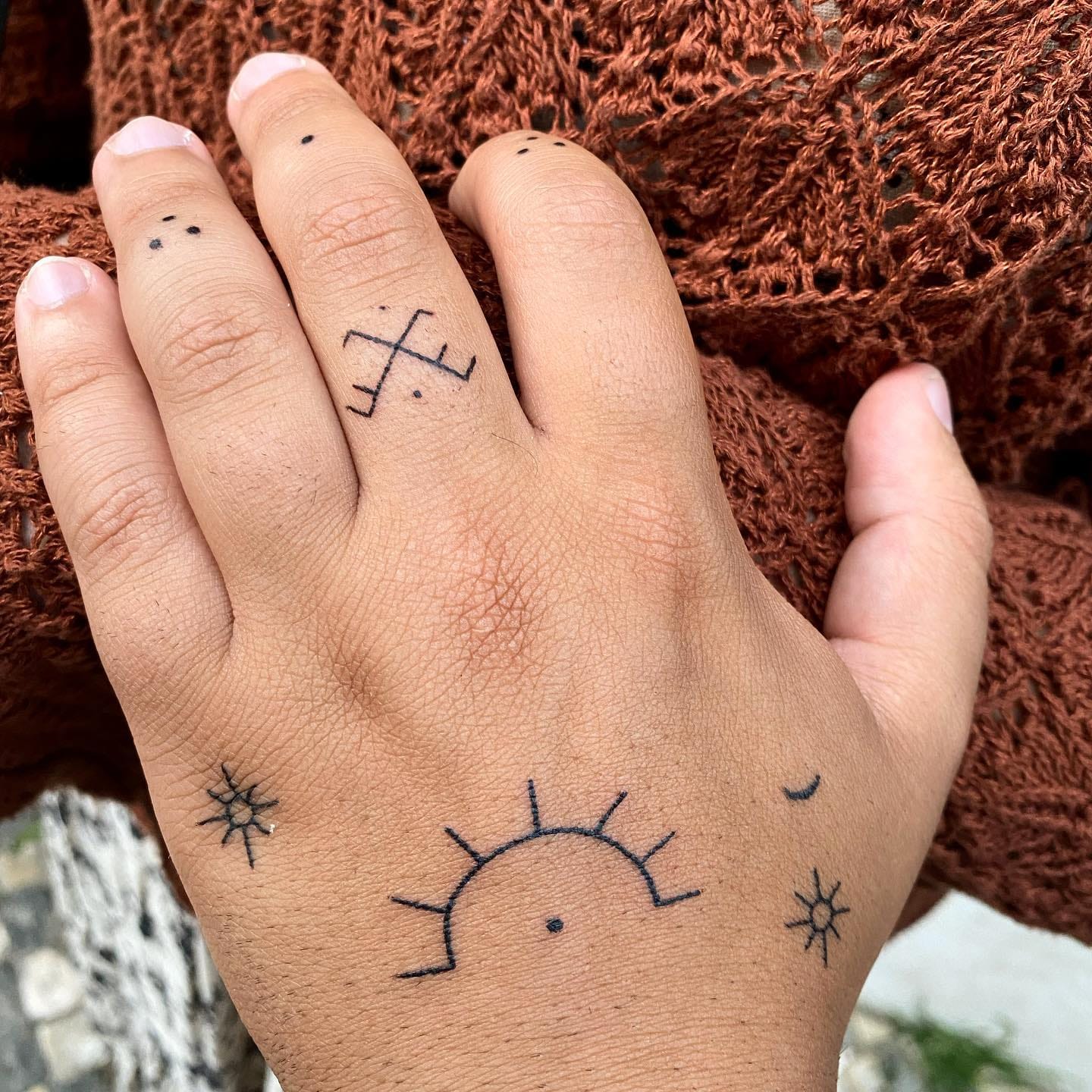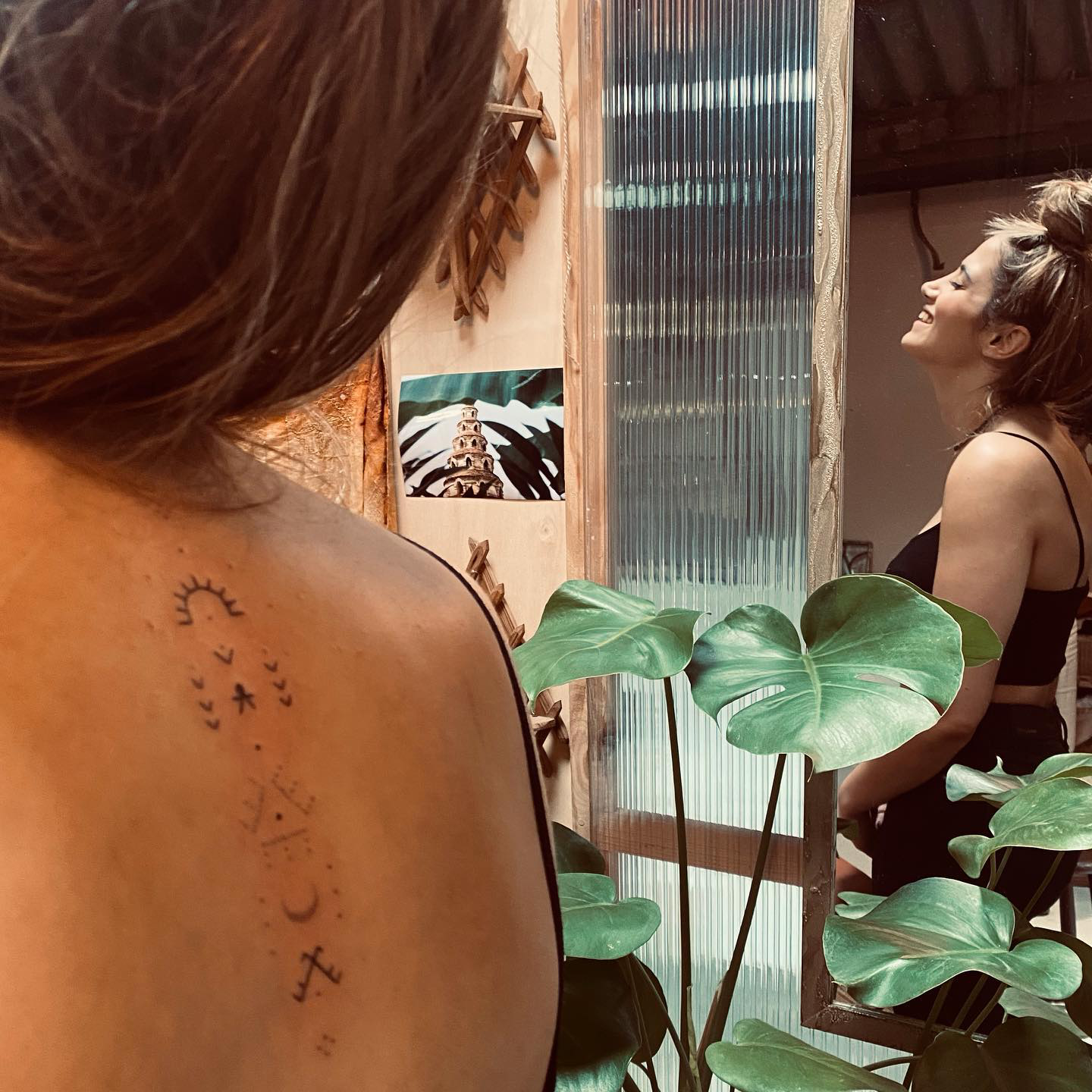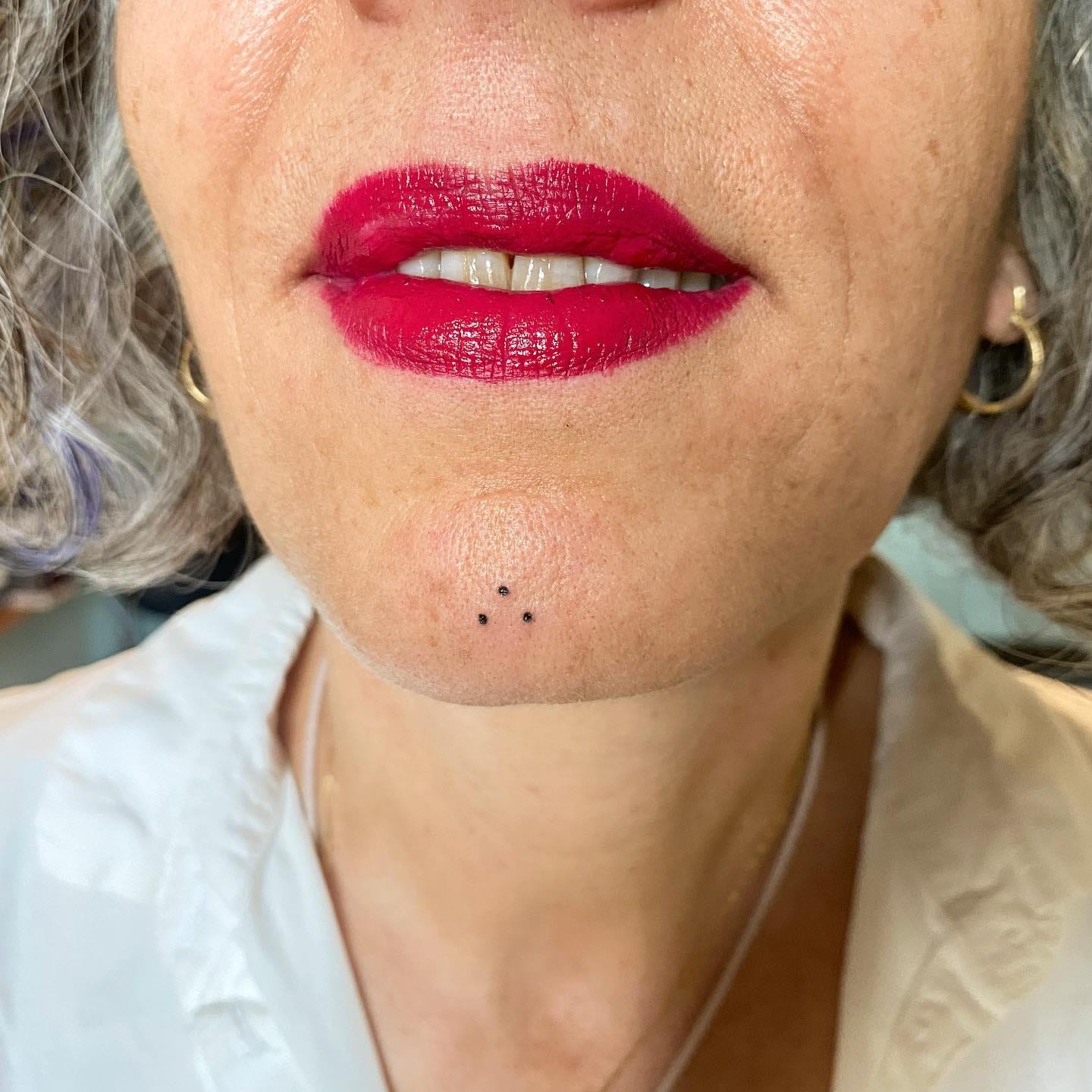Deq tattoos are a form of traditional tattooing commonly found among Kurdish women. The art form, which uses a mixture of lampblack and breast milk as ink, was traditionally passed down between women in a family. Sadly, the hand-poke tattoo practice is fading, with very few artists practicing the craft worldwide. Elu is one of them; she is a Kurdish Deq tattoo artist living in Portugal, who has been reviving interest in the craft. She does so with the help of social media, art galleries, and also an upcoming public funded documentary. This is why the work that Elu does is relevant to the United Nations Sustainable Development Goal of Reduced Inequalities.

In an interview with Al-Jazeera, Kurdish anthropologist Ahmet Yavuklu explained that traditionally, deq was considered to be a form of worship. People got deq tattoos to pray for abundance, protection, fertility, and blessings from God. He also explained that deq motifs are inspired by designs and patterns commonly found in nature, such as the sun, moon, stars, flower petals, and even wheat. Each part of nature carried a different meaning, a different want or need that people desired to align with. Certain forms of deq, such as temple dots, were also meant to have medicinal purposes such as healing migraines.

Elu herself has shared that she began practicing deq tattoo as a way to spiritually connect with her roots. Eli's parents who are survivors of a genocide, immigrated to Germany, where she was born. Hence, she always felt like she had been uprooted, never sitting in the right soil or tended in the right climate. “It’s a form of self-expression, it’s a form of identification, but mostly for me it’s a form of communicating with my ancestors,” says Elu.

Aside from having her own deq tattoo practice, for the past two years Elu has also been working with Çiler Kiliç to create a documentary on the last women with traditional skin markings (Deq, Kut, and Xal) from their homeland in Dêrsim. The project has been entirely crowd funded and is set to be finished soon. The documentary is set to be a compilation of testimonies from five women they had met in Dêrsim, the last guardians of the tradition.

Elu’s dedication to preserving the ancient Kurdish art of Ddq tattoos is a powerful testament to the resilience of cultural heritage. By reviving this nearly extinct practice, she not only reconnects with her roots but also ensures that this rich tradition is passed down to future generations. Through her tattoo work, social media presence, and an upcoming documentary, Elu is breathing new life into a cultural practice that is deeply intertwined with identity, spirituality, and history. Her efforts to keep deq tattoos alive are vital to maintaining the cultural diversity that is essential to a more inclusive and understanding world.
Find out more about deq Tattoos by Elu on her Instagram @deq.ttt.
